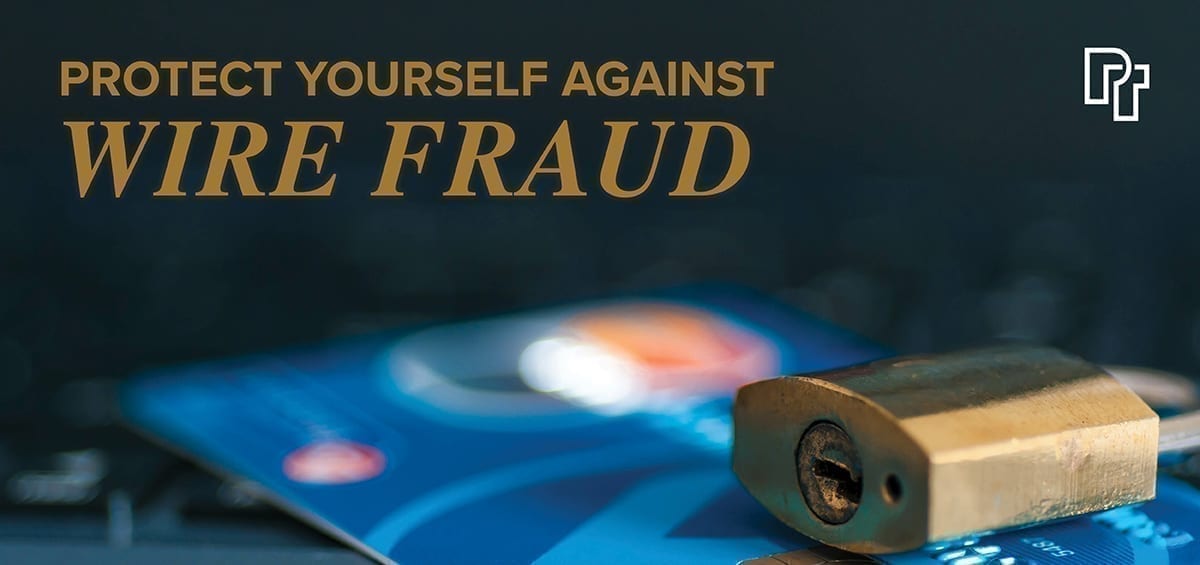Wire fraud in real estate transactions is on the rise. According to the FBI, about 11,677 people were victims of wire fraud in real estate in 2019 with losses of more than $221 million, which was a 48% increase over 2018. Criminals are taking advantage of the fact that more transactions are completed completely online.
There are a number of different ways fraudsters attempt to defraud shoppers, including replicating legitimate listings with altered contact information on authentic listing sites and running ads for places that aren’t actually for sale or rent to get a homebuyer engaged with them. Once they make the connection, they impersonate mortgage lenders and escrow officers to defraud home buyers out of money.
Most of the fraud occurs in email when the criminals hack email accounts and use the information found to create email addresses similar to those found in the user’s account. In the emails, they often request personal information and/or send wire transfer instructions to defraud victims. They may also use phone calls to solicit that information.
These schemes can be very difficult to spot. Here are some tips for protecting yourself from wire fraud as you complete your real estate purchase.
Use a Title Company That is Reputable
Establishing a trusting relationship with a reputable title company is the first defense against wire fraud. If possible, choose a local company that you can sit down with at some point and build a good relationship with. That way, you have a face with a name of the person you can call directly throughout the process to validate every step. Your real estate agent is a good source for connecting you with a trustworthy title company.
Verify Wire Instructions Over the Phone
If conducting the transaction online, don’t rely only on email. Most legitimate title companies will not email wire instructions and payment information. If you receive such information in email, no matter how legitimate it appears, pick up the phone and confirm the wire transfer instructions. Be sure to call a phone number you receive either directly from someone at the title company or from their website. Don’t call a phone number in the email. It’s part of the scam.
For an added layer of protection, have the wire transfer instructions physically overnighted to you from the title company and then confirm the details over the phone.
Look for Inconsistencies in Emails
Carefully review all emails for inconsistencies in email addresses and domains. Fraudsters only make minor changes so they are difficult to spot. It may only be a change in one letter, so be sure to check over everything with a discerning eye.
Be Suspicious of Changes and Rush Requests
Title companies are unlikely to send an email changing the writing instructions, nor are they going to attempt to rush you through the process. Fraudsters will. They will try to make last minute changes and they will push hard for a deadline in the hope that you will overlook false information and make a mistake. If changes do come through, call your title attorney directly for an explanation.
Verify Transaction Immediately
Confirm, confirm, confirm. Be sure to verify each part of the wire transaction as soon as it happens. Call the title company when you are sending the money and call them after it is sent to verify they received it.
You can’t be too careful when it comes to protecting yourself from wire fraud during a real estate transaction. A lot of money is about to change hands and there is no such thing as going too far to ensure it ends up in the right hands.







